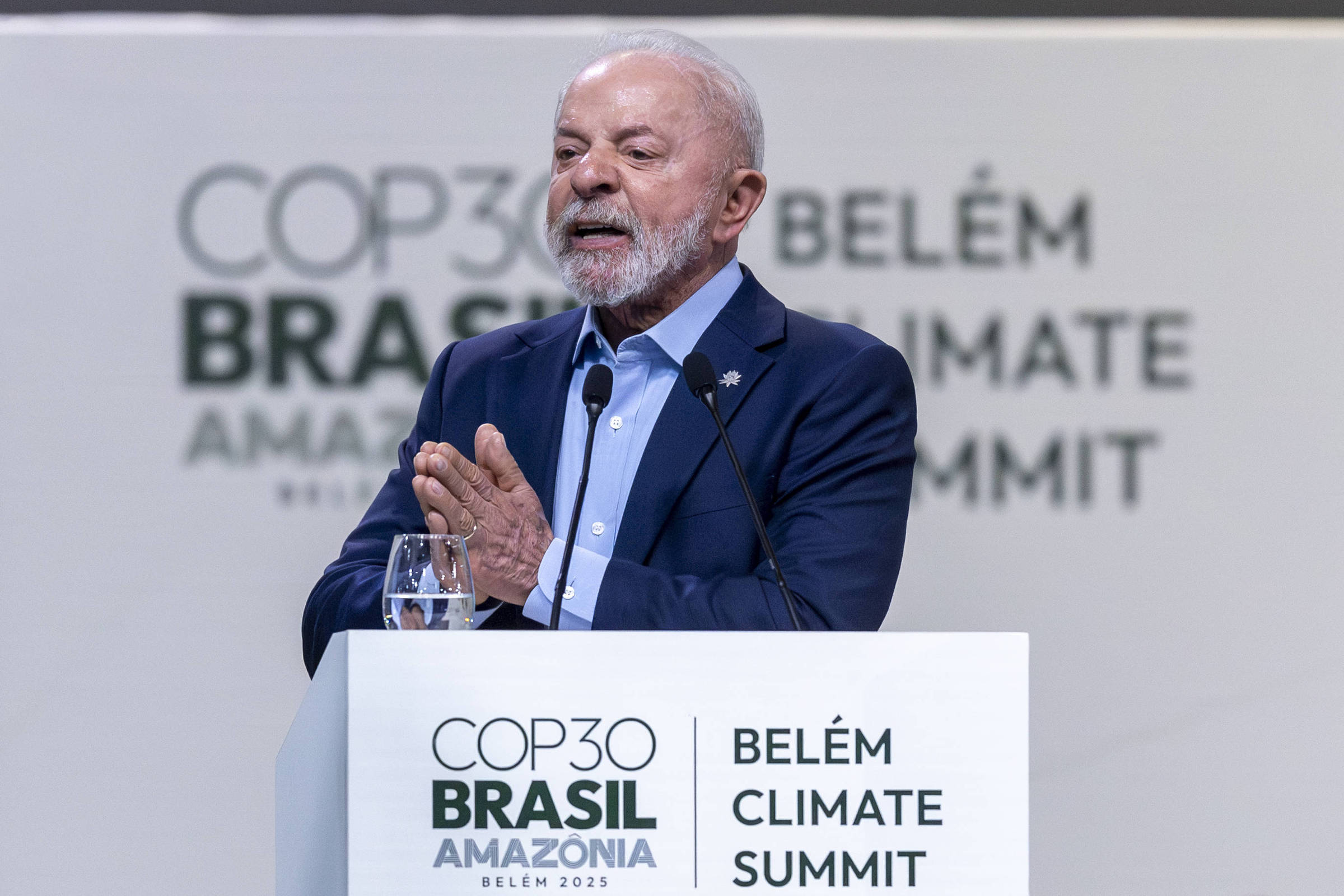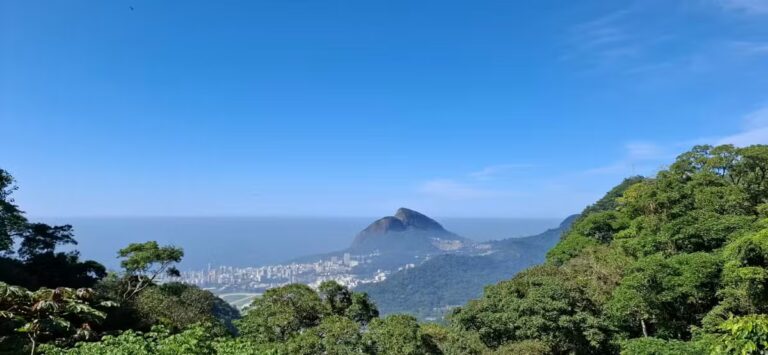
Projections that the goal of limiting global warming to 1.5°C above pre-industrial levels will not be met are putting pressure on COP30 to recognize the urgency of stepping up efforts to tackle climate change. This statement was made by scientists interviewed. sheetindicating that this objective should be maintained.
The Paris Agreement, signed in 2015, stipulates that countries strive to limit the rise in global temperatures to below 2 degrees Celsius above pre-industrial levels and not to exceed 1.5 degrees Celsius.
The United Nations Environment Programme, UNEP, said average temperatures are likely to rise above safe levels over the next 10 years.
In his opening speech at the COP30 Leaders’ Summit, President Lula (PT) recalled that 2024 was the first year in which the Earth exceeded its limits. “Science already shows that this increase will continue for some time or even decades, but we cannot abandon the objectives of the Paris Agreement,” he said.
What will happen if global warming exceeds 1.5°C?
According to the Intergovernmental Panel on Climate Change, the IPCC, exceeding the 1.5°C limit, known in scientific terminology as “overshoot,” will cause irreparable damage to the planet.
The worst effects will occur in polar, mountainous and coastal regions, which are already poorly prepared for global warming.
Above 1.5°C, humans and ecosystems will be exposed to even more intense heat and rain, increasing risks to infrastructure.
“For the first time, the world experienced an ‘overshoot’ of 1.5°C in 2024, and we saw what happened in Brazil,” said Claudio Angelo, international policy coordinator at the Climate Observatory, referring to floods in Rio Grande do Sul and drought in the Amazon.
At these temperature levels, 70% to 90% of the world’s corals die. Because coral reefs support many marine species, this can cause a series of cascading effects.
The frozen ground in the Northern Hemisphere, called permafrost, stores large amounts of methane, a greenhouse gas about 25 times more potent than carbon dioxide.2. When the temperature increases by 1.5°C, the material begins to melt and all the carbon is released into the atmosphere.
“This is a big concern,” said scientist Mercedes Bustamante, author of the IPCC report. “The thaw would throw the whole system out of balance and the soil would collapse. Many researchers have also expressed concern about microorganisms that could cause new diseases when the thaw occurs.”
Is global warming uniform across the globe?
No. The IPCC predicts that extreme temperatures will generally increase around the world, but there will be wide variation. In high latitude regions where the poles are located, the winter temperature increase is 4.5 degrees Celsius, or three times as much as 1.5 degrees Celsius.
According to UNEP, in a best-case scenario, if all voluntary targets for 2035 are met, the planet will warm by 2.3°C to 2.5°C by the end of this century. If current behavior is maintained, the thermometer will rise by 2.8°C.
Physicist Paulo Artaxo, who also signed the IPCC report, said: “The continental region will be much warmer than the global average. Under the 2.8°C scenario, the expected warming in Brazil would be between 3.5°C and 4°C.”
Is it possible to return to the safest temperature level after it has been exceeded?
Yes, but in addition to reducing all greenhouse gas emissions to zero, this requires large-scale removal of carbon from the atmosphere. In other words, it is a highly complex task and relies on gas isolation technology that is not yet available.
The IPCC calculates that for every 0.1 degree Celsius rise in the thermometer, 220 billion tonnes of carbon dioxide need to be emitted. This is about four times more pollution than the world releases into the atmosphere each year.
“This doesn’t mean that in 100 years these technologies can’t emerge and reduce the temperature of the planet, but it’s definitely better to take precautions to prevent the planet’s temperature from exceeding 1.5 or 2 degrees Celsius,” Altaxo said.
The IPCC advises the world to limit temperature increases to around 1.5°C and to limit temperature rises above this to as short a time as possible. The further the thermometer moves from the safest level, the greater the damage.
“The fact that ice sheet melting is becoming more pronounced in both the northern and southern hemispheres, and then temperatures return to 1.5°C, does not mean that areas covered by lost snow and ice will recover,” Bustamante said.
How can COP30 address this issue?
This topic is not on the summit’s official negotiating agenda. Therefore, all countries present in Belem must approve the discussion of this topic.
Ambassador Andre Correa de Lago, the conference’s president, said that beyond 1.5°C, more space could be added to the action agenda, as the parallel plan with the COP is called.
“Solutions are on the action agenda and the ‘overshoot’ clearly makes it even more important to accelerate implementation. Even if it is not good news, this shows that we really have to speed up,” he said.
Bustamante argues that countries’ next climate targets, set out in 2030 along with targets for 2040, will be more ambitious and anticipate removing carbon from the atmosphere. “Especially countries that are the largest emitters and need to make strong and rapid reductions that involve removal.”
For Claudio Angelo, the countries gathered at COP30 will have to strive to exceed the priorities of the Paris Agreement. “Belem will at least need to recognize that we are entering an ‘overshoot’ and reaffirm that the goal is to limit warming to 1.5°C,” he said.



